Speaking at the opening ceremony of the Semicon India exhibition held on the outskirts of New Delhi on September 11, Prime Minister Narendra Modi said: "This is the right time for the semiconductor sector to be present in India."
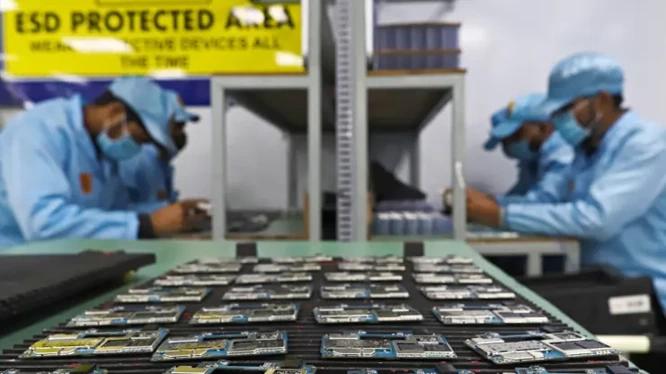 |
| Workers work at Dixon Technologies' smartphone assembly plant in Uttar Pradesh, India. (Source: CNBC) |
Prime Minister Modi made the remarks before a large number of guests from the world's leading chip companies.
"India will do whatever it takes to become a semiconductor powerhouse," the Prime Minister stressed.
Semicon India, India’s first exhibition, is organised by the Semiconductor Trade Association International (SEMI). More than 250 domestic and international companies are participating in the event, thanks to government incentives of up to Rs 760 billion ($9 billion) to boost domestic manufacturing.
India is the eighth country to host the event, after the US, Japan and some European countries.
Before the opening ceremony, Mr. Modi met representatives of semiconductor companies such as US-based Micron Technologies and chip manufacturing equipment supplier Tokyo Electron.
Prime Minister Modi once wrote on social media platform X that India is aiming to “become the hub” of the global semiconductor industry.
Tata Electronics, part of India's Tata Group, has announced a series of cooperation plans with Tokyo Electron and Portuguese semiconductor equipment maker ASMPT to boost semiconductor manufacturing.
Taiwan's Powerchip Semiconductor Manufacturing Corp., also in partnership with Tata, plans to build its first chip factory in India. Meanwhile, Micron has also announced plans to build a semiconductor manufacturing facility in the country.
Infrastructure is crucial to chip manufacturing. Fabrication plants typically employ hundreds of pieces of equipment that run continuously, consuming huge amounts of electricity.
In addition, a logistics system that ensures a stable supply of materials and chemicals is also essential.
“India has poor power and water infrastructure, which is critical for the semiconductor industry,” said Jun Okamoto, partner at KPMG FAS. “Another challenge for the country will be retaining top IT talent, who tend to look for work abroad.”
For companies around the world, India's efforts to build semiconductor infrastructure are offering a host of commercial opportunities.
For example, Japan’s Nippon Express Holdings, a ground transportation company, will deploy services in India ranging from warehousing operations to logistics solutions for factory construction. Nippon Express Holdings has opened a booth at Semicon India to provide logistics services to chipmakers.
"New Delhi is in its first year of semiconductor development. We aim to become a leader in semiconductor logistics, building on our experience in Kumamoto, Japan, where Taiwan's TSMC has expanded, and Hokkaido, where Rapidus is building a semiconductor factory," said Teruaki Nagoya, representative of Nippon Express Holdings in India.
Source: https://baoquocte.vn/thu-tuong-modi-an-do-se-lam-bat-cu-dieu-gi-can-thiet-de-tro-thanh-cuong-quoc-ban-dan-285987.html



![[Photo] Many people in Hanoi welcome Buddha's relics to Quan Su Pagoda](https://vphoto.vietnam.vn/thumb/1200x675/vietnam/resource/IMAGE/2025/5/13/3e93a7303e1d4d98b6a65e64be57e870)
![[Photo] Prime Minister Pham Minh Chinh receives Ambassador of the French Republic to Vietnam Olivier Brochet](https://vphoto.vietnam.vn/thumb/1200x675/vietnam/resource/IMAGE/2025/5/13/f5441496fa4a456abf47c8c747d2fe92)
![[Photo] President Luong Cuong attends the inauguration of the international container port in Hai Phong](https://vphoto.vietnam.vn/thumb/1200x675/vietnam/resource/IMAGE/2025/5/13/9544c01a03e241fdadb6f9708e1c0b65)
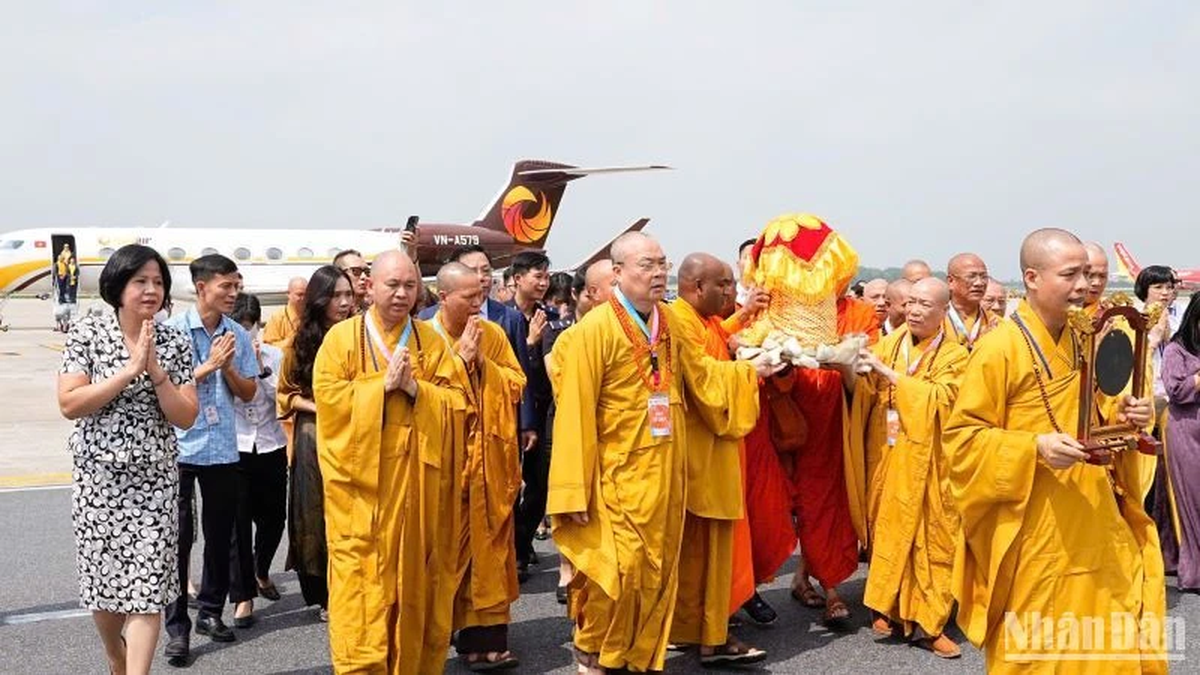
![[Photo] President Luong Cuong awarded the title "Heroic City" to Hai Phong city](https://vphoto.vietnam.vn/thumb/1200x675/vietnam/resource/IMAGE/2025/5/13/d1921aa358994c0f97435a490b3d5065)




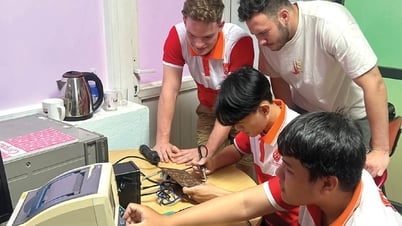

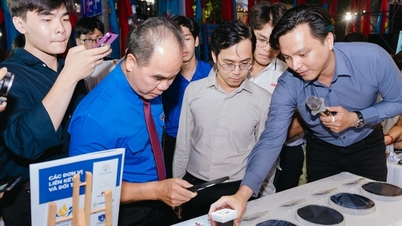

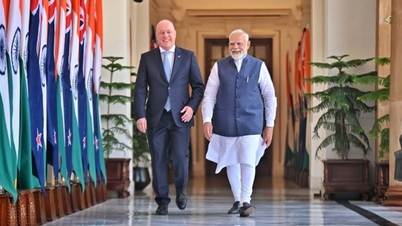
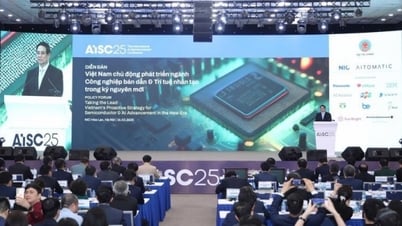

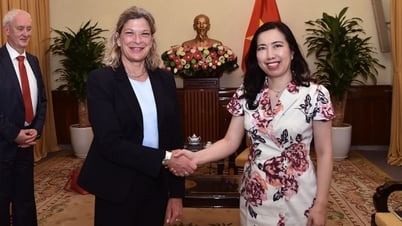
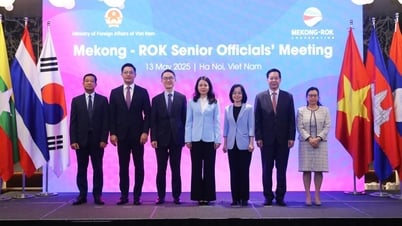
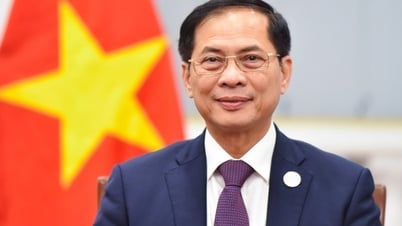
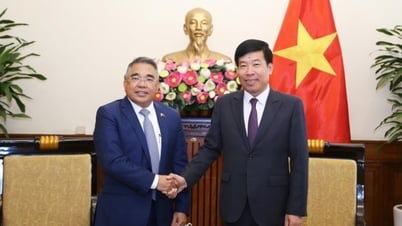
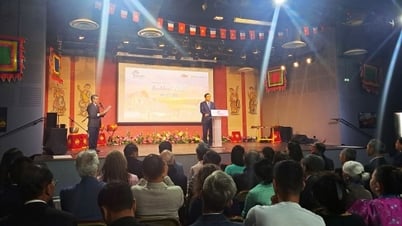

































































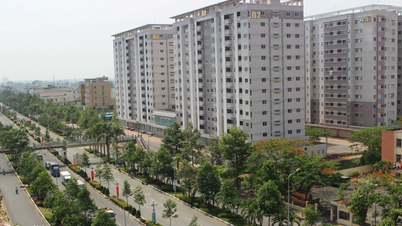












Comment (0)